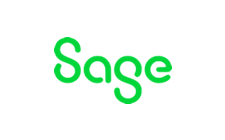Furlough scheme winding down
From 1 July 2021, employers must now pay part of employees’ furlough wages as the Coronavirus Job Retention Scheme (CJRS) starts to wind down. What's the full story?

For claim periods ending on or before 30 June 2021 employers could claim from the CJRS 80% of an employee’s usual wages for hours not worked, up to a maximum of £2,500 per month, and only needed to cover the employers’ NI and auto-enrolment pension contributions. However, for claim periods from 1 July 2021, the level of government grant under the CJRS is being gradually reduced and employers must now contribute towards the cost of r furloughed employees’ wages as follows:
- July - government contribution to wages for hours not worked: 70% up to a cap of £2.187.50; employer contribution to wages for hours not worked: 10% up to a cap of £312.50.
- August - government contribution to wages for hours not worked: 60% up to a cap of £1,875; employer contribution to wages for hours not worked: 20% up to a cap of £625.
- September - government contribution to wages for hours not worked: 60% up to a cap of £1,875; employer contribution to wages for hours not worked: 20% up to a cap of £625.
Employers must also still pay the employers’ NI and auto-enrolment pension contributions.
Furloughed employee will therefore continue to receive 80% of their usual wages, up to the cap of £2,500 per month, for the time they spend on furlough, but their wage payment is now partly funded by the employer. The CJRS is then due to come to an end on 30 September 2021.
Related Topics
-
Planning ahead for pension salary sacrifice changes
From 6 April 2029, both employers and employees will be required to pay Class 1 NI on pension contributions in excess of £2,000 made through a salary sacrifice arrangement. What can you do about it?
-
Marginal relief - responding to an HMRC nudge letter
HMRC is running a campaign to clamp down on incorrect claims for corporation tax marginal relief (MR). In what circumstances might you be challenged by HMRC and how should you respond?
-
Can you claim input tax on costs linked to electric cars?
Your business intends to go green and buy new electric cars. Can you claim input tax on the purchase of the vehicles and their subsequent fuel costs? Additionally, what recent change has been announced by HMRC?






 This website uses both its own and third-party cookies to analyze our services and navigation on our website in order to improve its contents (analytical purposes: measure visits and sources of web traffic). The legal basis is the consent of the user, except in the case of basic cookies, which are essential to navigate this website.
This website uses both its own and third-party cookies to analyze our services and navigation on our website in order to improve its contents (analytical purposes: measure visits and sources of web traffic). The legal basis is the consent of the user, except in the case of basic cookies, which are essential to navigate this website.